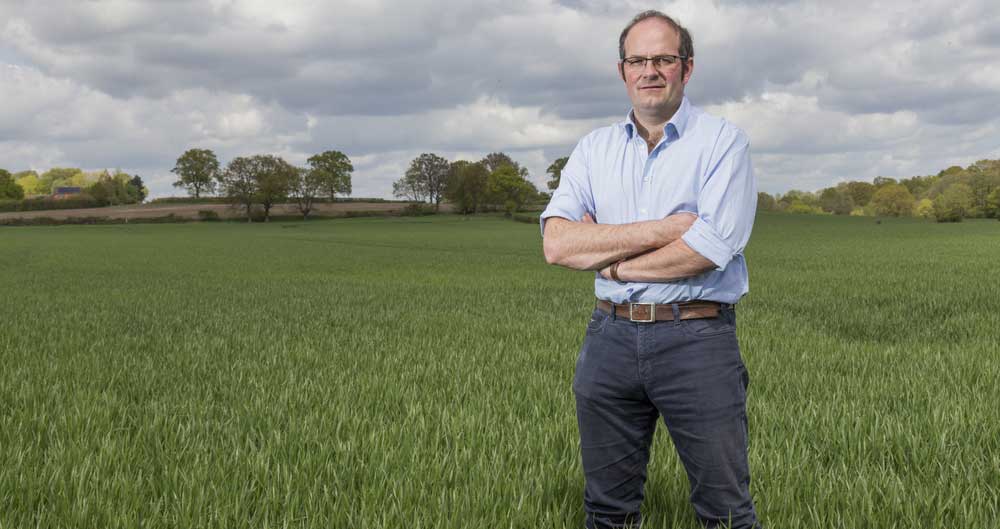The All-Party Parliamentary Group (APPG) on Science and Technology in Agriculture says the proposed amendment would pave the way for the UK to ditch damaging EU rules blocking access to precision breeding tools vital for agricultural improvement at home and overseas.
The group, chaired by York Outer MP Julian Sturdy, has written to Defra Secretary of State George Eustice urging the government to introduce an enabling amendment during the Lords stages of the Bill.
The proposed amendment would provide new powers for Ministers to consult on and, if appropriate, make a simple change to the UK Environmental Protection Act giving Britain’s scientists, farmers, plant breeders and animal breeders the same access to new gene editing technologies as their counterparts around the world.
NFU Vice President Tom Bradshaw said:
“I see this amendment as an opportunity that simply cannot be missed, to put the UK in a world-leading position to showcase sustainable climate-friendly farming. Delivery of the Prime Minister’s wish to “liberate the bioscience sector” requires a regulatory system that is fit for purpose.
“The cost of not taking this opportunity is the UK being unable to make use of a set of breeding tools that are already being shown to offer solutions to intractable problems such as the need to protect plants and animals from disease; the need to use fewer resources while maintaining or increasing quality and yield; and the need to produce more nutritious and more sustainable food for both domestic and export markets.”
Read more on the NFU's activity as the Agriculture Bill passed through parliament:
The Agriculture Bill is the most important piece of legislation to come before Parliament for UK farming, particularly in England, for many decades and had its ‘Report Stage’ in the House of Commons on Wednesday 13 May.
Ahead of the debate, the NFU put together a briefing setting out its views on how the Bill can pave the way for a more productive and sustainable farming model fit for the 21st century.
The NFU also launched a new ‘Write to your MP’ tool for members to encourage their MPs to take part in this important stage of the debate. Earlier this year, we ran a similar tool from which over 600 members contacted over 200 MPs on our asks on the Agriculture Bill.
This time, in just six days, nearly 2,000 members sent emails to 330 MPs - thank you for your support.
There were five key NFU asks of the Agriculture Bill's Report Stage, click here to read them.
In recent years, the All-Party Group has taken a keen interest in prospects for advanced gene editing techniques such as CRISPR-Cas9 to deliver radical improvements in the speed and precision of crop and livestock breeding, opening up significant opportunities to keep pace with demands for increased agricultural productivity, resource-use efficiency, more durable pest and disease resistance, improved nutrition and resilience to climate change.
However, in July 2018 the Court of Justice of the European Union (CJEU) ruled that these promising new precision breeding tools should be regulated as GMOs, putting the EU at odds with how these techniques are regulated in other parts of the world, such as the US, Argentina, Brazil, Australia and Japan.
The CJEU ruling has been widely criticised by scientists, farmers, plant breeders and politicians as an unwarranted block to innovation vital for our response to climate change, food security and sustainable development.
UK Ministers have repeatedly indicated their fundamental disagreement with the CJEU ruling and stated the government’s view that gene edited organisms should not be subjected to GM regulation if the DNA changes could have occurred naturally or through traditional breeding methods.
The APPG says this proposal offers a simple regulatory solution for this once the UK leaves the EU, which would be to exchange the current EU definition of GMO in the UK Environmental Protection Act for a definition compatible with the internationally recognised Cartagena Protocol – to which the UK is a signatory. This would re-align the UK with the regulatory stance of other countries around the world whose scientists, plant and animal breeders, farmers, consumers and environments are already benefiting from access to these valuable precision breeding technologies.
More from NFUonline:

